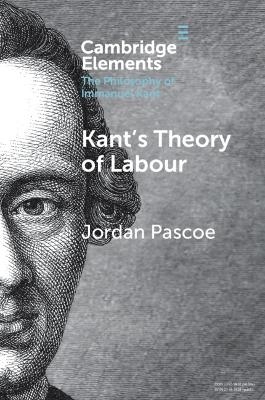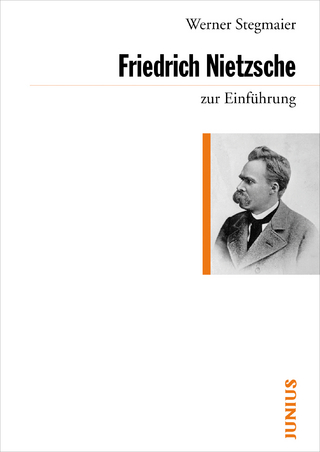
Kant's Theory of Labour
Seiten
2022
Cambridge University Press (Verlag)
978-1-009-16574-7 (ISBN)
Cambridge University Press (Verlag)
978-1-009-16574-7 (ISBN)
This Element examines Kant's innovative account of labour in his political philosophy and develops an intersectional analysis of Kant, revealing the ways that his arguments about sex and gender and his arguments about slavery and race developed in intertwined ways over several decades.
This Element examines Kant's innovative account of labour in his political philosophy and develops an intersectional analysis of Kant. By demonstrating that Kant's analysis of slavery, citizenship, and sex developed in inter-linked ways over several decades, culminating in his development of a 'trichotomy' of Right, the author shows that Kant's normative account of independence is configured through his theory of labour, and is continuous with his anthropological accounts of race and gender, providing a systemic justification for the dependency of women and non-whites embedded in his philosophy of right. By examining Kant's arguments about slavery as intertwined with his account of domestic labour, the author argues that his ultimate rejection of slavery may owe more to his changing conceptualization of labour than to his theory of race, and that his final arguments against slavery rehearse strategies for embedding intersectional patterns of domestic dependence in his account of the rightful state.
This Element examines Kant's innovative account of labour in his political philosophy and develops an intersectional analysis of Kant. By demonstrating that Kant's analysis of slavery, citizenship, and sex developed in inter-linked ways over several decades, culminating in his development of a 'trichotomy' of Right, the author shows that Kant's normative account of independence is configured through his theory of labour, and is continuous with his anthropological accounts of race and gender, providing a systemic justification for the dependency of women and non-whites embedded in his philosophy of right. By examining Kant's arguments about slavery as intertwined with his account of domestic labour, the author argues that his ultimate rejection of slavery may owe more to his changing conceptualization of labour than to his theory of race, and that his final arguments against slavery rehearse strategies for embedding intersectional patterns of domestic dependence in his account of the rightful state.
1. Could It Be Worth Thinking About Kant on Labour?; 2. Kant's Theory of Labour; 3. 'A New Star': Kant's 'Trichotomy' Argument; 4. Of Sex and Slavery: The Development of Domestic Right; 5. Labour, Leisure, and Laziness: A Kantian Taxonomy of Entitlement; 6. Kantian Reconstruction: Slavery, Abolition, and Poverty Relief; 7. The Problem of Kantian Intersectionality; Bibliography.
| Erscheinungsdatum | 14.09.2022 |
|---|---|
| Reihe/Serie | Elements in the Philosophy of Immanuel Kant |
| Zusatzinfo | Worked examples or Exercises |
| Verlagsort | Cambridge |
| Sprache | englisch |
| Maße | 150 x 228 mm |
| Gewicht | 130 g |
| Themenwelt | Geisteswissenschaften ► Philosophie ► Philosophie der Neuzeit |
| Sozialwissenschaften ► Politik / Verwaltung ► Politische Theorie | |
| Sozialwissenschaften ► Soziologie ► Mikrosoziologie | |
| ISBN-10 | 1-009-16574-7 / 1009165747 |
| ISBN-13 | 978-1-009-16574-7 / 9781009165747 |
| Zustand | Neuware |
| Haben Sie eine Frage zum Produkt? |
Mehr entdecken
aus dem Bereich
aus dem Bereich


